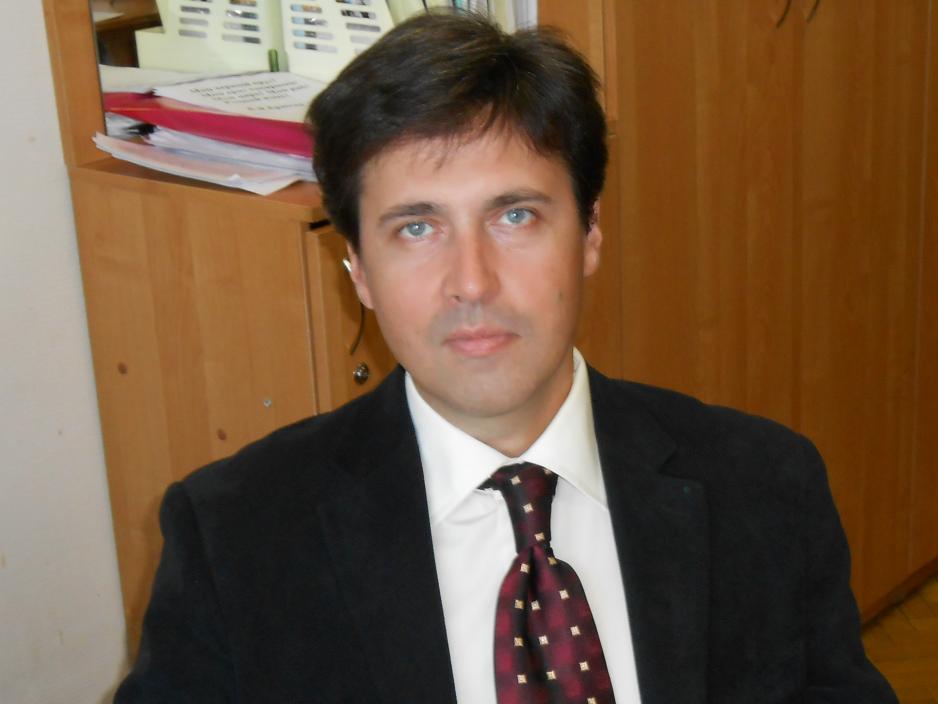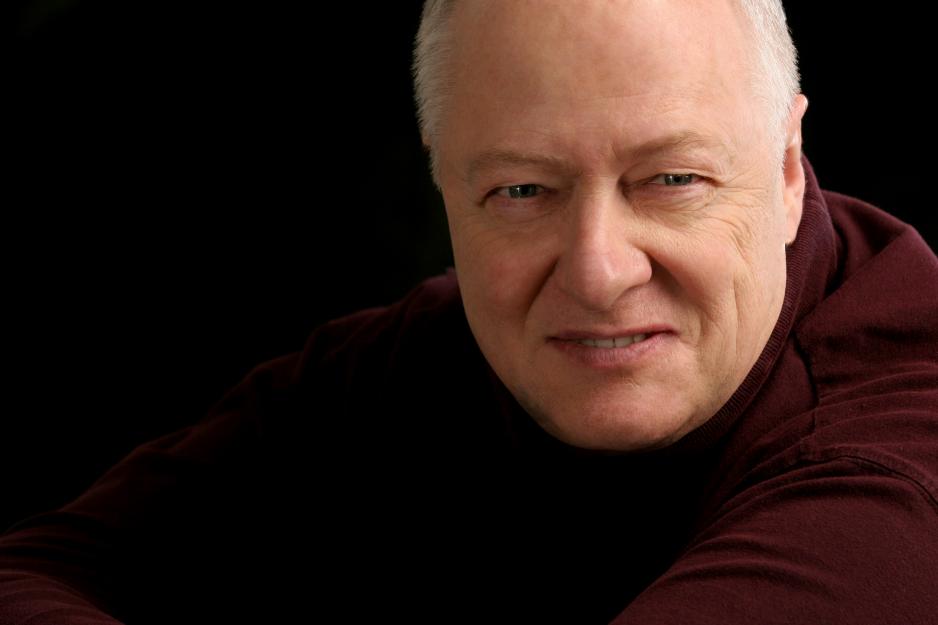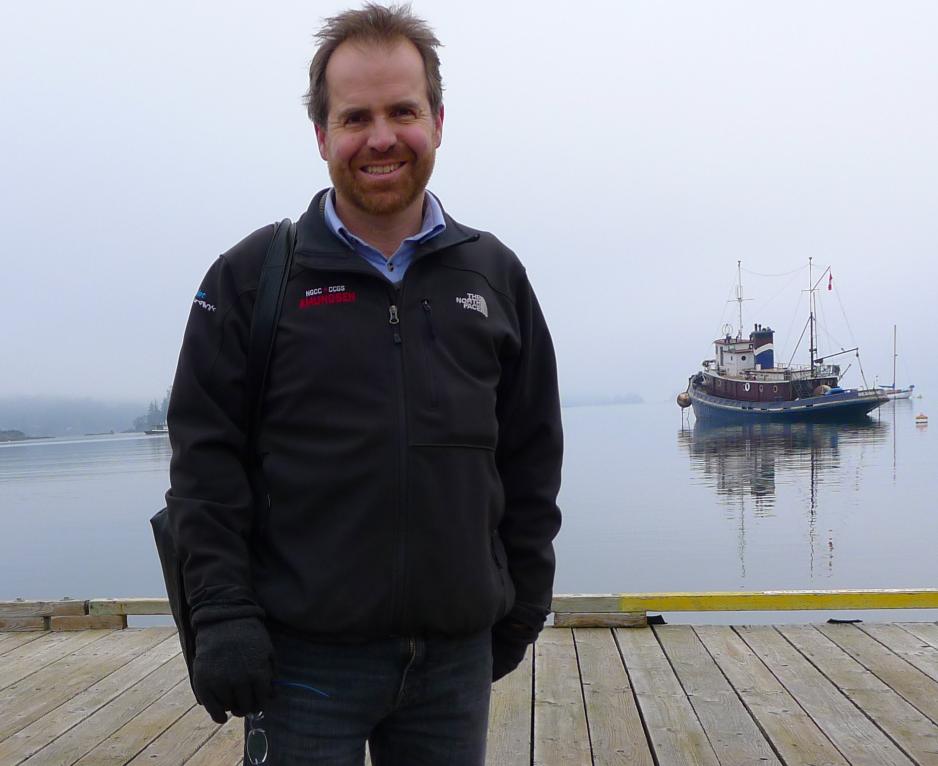The New North: - Loss of confidence-building arenas

End of military-to-military cooperation in the North has seriously damaged the confidence-building opportunities and arenas.
Click here to read the Norwegian version of this article.
Researcher Ekaterina Klimenko at Stockholm International Peace Research Institute (SIPRI) stresses that military-to-military contact created confidence-building mechanisms, which are now lost.
Klimenko underlines that important meeting points are missing because of the termination of military-to-military cooperation. As Klimenko sees it, this is the major consequence of the sanctions between East and West.
The circumpolar platform is gone
She speaks about the loss of confidence, because of the sanctions from both sides.
- The major consequence, I would say, is the suspension of military-to-military cooperation in the Arctic. The Arctic does not have a dedicated institution to deal with hard security. The informal cooperation in this area that had started to emerge in recent years is damaged by the crisis over Ukraine.
The most concrete example is the annual meetings of the military Chiefs of Staff of the Arctic states, which was the only circumpolar platform for discussing hard security cooperation. This was cancelled in 2014.
Exercises suspended
Bilateral (e.g. ‘Pomor’ between Russia and Norway) and multilateral military exercises (e.g. US, Russia, Norway Northern Eagle) have also been suspended for an indefinite period. Those exercises were important confidence-building mechanisms.
Click here to read all the articles published so far, in our article series "The New North".
Jonas Kassow at The German Council on Foreign Relations points out that Russian military activities in the Arctic has led to an increase in suspicion in the Department of Defense in Washington DC..
- At the same time, the exercise “Cold Response” was much bigger than two years ago, and could be seen as an indication of the growing military and strategic relevance of Northern Europe and the Arctic for NATO. Like in previous years, German Special Forces took part in the exercise, while the US participation was larger than two years ago.
Kassow is partly supported by his fellow compatriot Golo Bartsch, who is working at the Federal Ministry of Defence. Mr. Bartsch underlines strongly that he is speaking for himself, and that his statements cannot, under any circumstances, be linked to the Federal Ministry of Defence.)
- As the Arctic is not a theatre for “high politics”, it has been rather disconnected from extra-regional events (e.g. Georgia war or Ukraine crisis), and mostly still seems to be so.
- Military cooperation between Euro Atlantic Arctic states and Russia as done for example in the Russian-Norwegian “Pomor” exercises, however, is no longer an option for the time being, Golo Bartsch concludes.
Russia: - Disputes should be solved peacefully
Professor of St. Petersburg State University, Alexander Sergunin, states that the Arctic cooperation does not work in the following areas:
- Military/security. Joint Russia-NATO member-states exercises and military exchanges are cancelled; military-to military contacts and discussions are frozen.
As far as existing territorial disputes with other coastal states are concerned, the Kremlin has repeatedly underlined that all these disputes should be solved in a peaceful way and on the basis of international law (e.g. 1982 UN Convention on the Law of the Sea, and 2008 Ilulissat Declaration).
Oleg Aleksandrov, Professor at the University of MGIMO, says that the Arctic region has a very low conflict potential.
- In my opinion, Arctic cooperation still works on all levels, with an exception of military cooperation, simply because Russia is not a NATO member state, and Russia – NATO relation are frozen.
A new security council of the North?
Rear Admiral Nils Christian Wang, who is chief of the Royal Danish Defense College, thinks that will be rather difficult to fulfill.
- Reality is that The Arctic Council is not handling that kind of questions, because the US did not want it to. And I cannot see that the US has taken another view on this matter.
It is difficult to see the possibility to create such a new council, taken into consideration the lack of willingness to cooperate between Russia and the West at the moment.
In my view, the best opportunity for a consulting arena on security issues right now is that the Arctic Five (the 5 Arctic coastal states) also discuss security matters during their meetings, Rear Admiral Wang says to High North News.
Spill over to the Arctic
Harri Mikkola and Juha Käpylä, Senior Research Fellow’s at The Finnish Institute of International Affairs (FIIA), returns to what Ekaterina Klimenko stated:
- In general, the deteriorated relations between Russia and the West have spilled over also to the Arctic:
- It has somewhat changed the Arctic discourse. More emphasis has been put on hard security issues andit has had a negative effect on certain confidence building measures e.g. in the sphere of military cooperation, concludes the Finnish researcher.
Limited interaction
Tony Penikett, who is a Former Premier of Yukon Territory in Canada, says the general view in Canada is that the Ukraine conflict in 2014 hampered decades of positive development that occurred with the end of the Cold War, including land claims agreements and focus on northern issues.
- Currently, there is more doubt about the future, Penikett says.
When the Canadian government sought votes from the Ukrainian community in 2014, it equaled hard line, he continues:
- But even there, cooler heads prevailed, as there was an understanding that if we want to do anything in the Arctic, Russia needs to be onboard and included.
According to the Former Premier of Yukon Territory there is limited interaction between the communities in the north and Russia.
- The Arctic Council plays a role, but even that is a relatively unknown body in the Canadian North. The Arctic Council has a reputational problem, it is unknown.
Besides, he says:
- Compared to Norway, size matters. The distance in the Canadian Arctic, with a sparse population, does not involve Russian issues or cooperative efforts.
- Have to cooperate
Michael Byers, Professor and Canada Research Chair in Global Politics and International Law at University of British Columbia in Vancouver, says that under Harper years – and after Crimea – the rhetorical level of Russia as the “enemy” changed. The environment got more disruptive.
- But even the Harper government realized it had to cooperate on some levels, like under the Arctic Council with search and rescue and scientific cooperation.
For example, he says, Russian representatives was allowed to attend Arctic Council and Arctic Economic Council meetings during Harper reign. Also, a few months after Crimea, the Vice President of Rosneft was in Iqaluit.
- This highlights how the Arctic is separate to an extent.
Byers also mentions that Canada’s new Foreign Minister Dion publically has stated how he aims at improving relations with Russia.
Canada has, for example, not adopted new sanctions against human rights violators in Russia, and all of this – Byers says – is seen as the new approach towards Russia, with more focus on cooperation.
- There is a recognition that we have to express concerns over Russian behavior, but that there is no direct threat to Canada, he says.
Even during the Cold War, Canada cooperated with the USSR in the Arctic. In 1973, the two countries signed the Polar Bear agreement.
- The situation today is much better than then, and there is more room for maneuver, Byers says.
Ekaterina Klimenko is Researcher at Stockholm International Peace Research Institute (SIPRI).
Jonas Kassow is a Program Assistant, USA/Transatlantic Relations Program at the German Council on Foreign Relations (DGAP), Berlin
Stefan Steinicke is Fellow at Research Division EU/Europe, the German Institute for International and Security Affairs (SWP) in Berlin.
Golo Bartsch is Desk Officer for European Affairs at Germany’s Federal Ministry of Defence. Bartsch wants to make it clear that he speaks in a personal manner, and that his statements cannot be linked, under any circumstances, to his official position of the German Federal Ministry of Defence.
Alexander Sergunin is Professor of St. Petersburg State University, Department of International Relations, School of International Relations, St. Petersburg, Russia.
Oleg Aleksandrov is Associate Professor at the University of MGIMO in Moscow, Russia.
Rear Admiral Nils Christian Wang is chief of the Royal Danish Defense College, Copenhagen, Denmark.
Harri Mikkola and Juha Käpylä are Senior Research Fellow’s at the Global Security Research Programme, at The Finnish Institute of International Affairs (FIIA).
Tony Penikett is a Negotiator, Former Premier of Yukon Territory, Canada, and a Visiting Professor at Simon Fraser University, Vancouver.
Michael Byers is a Professor and Canada Research Chair in Global Politics and International Law, University of British Columbia, Vancouver.








